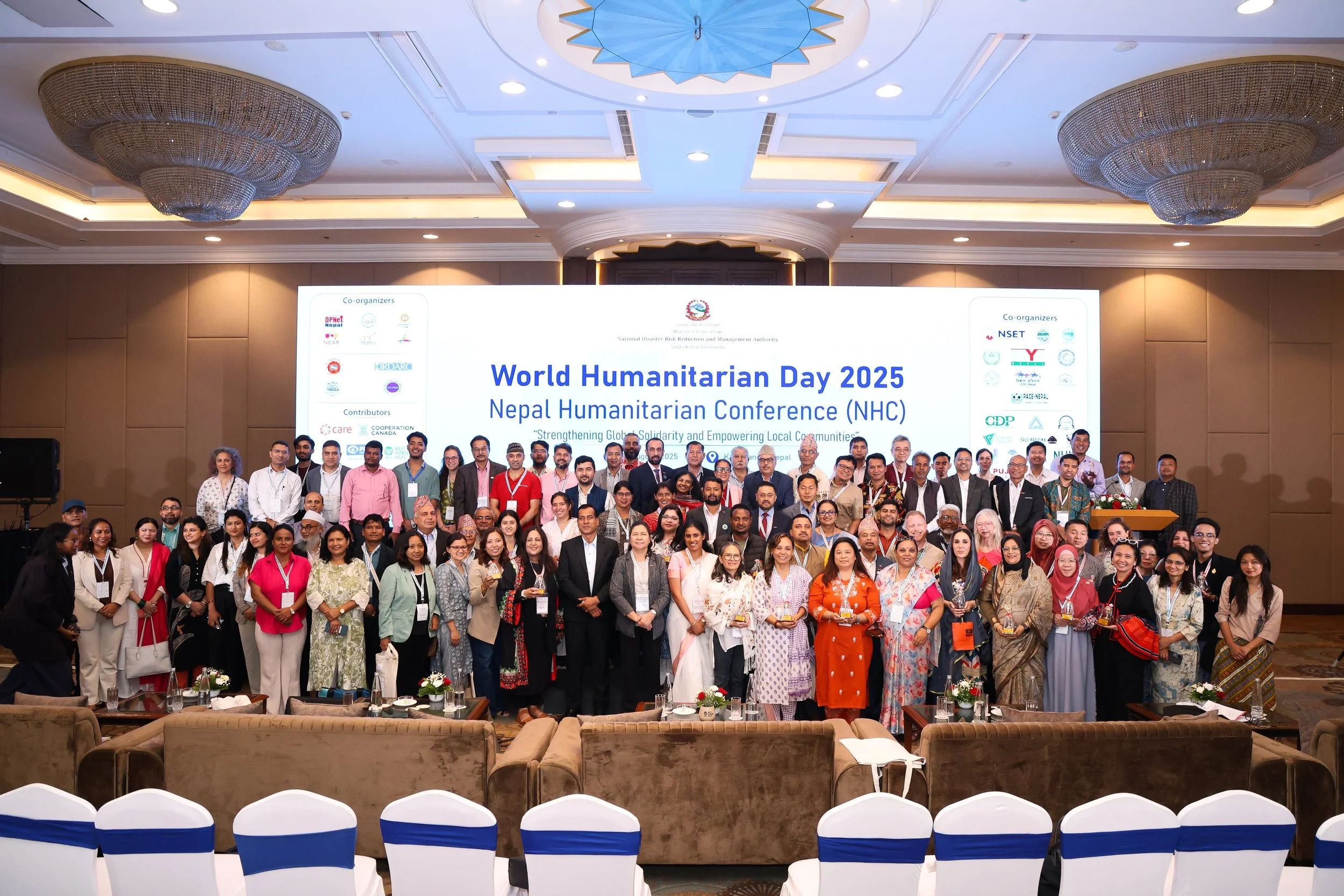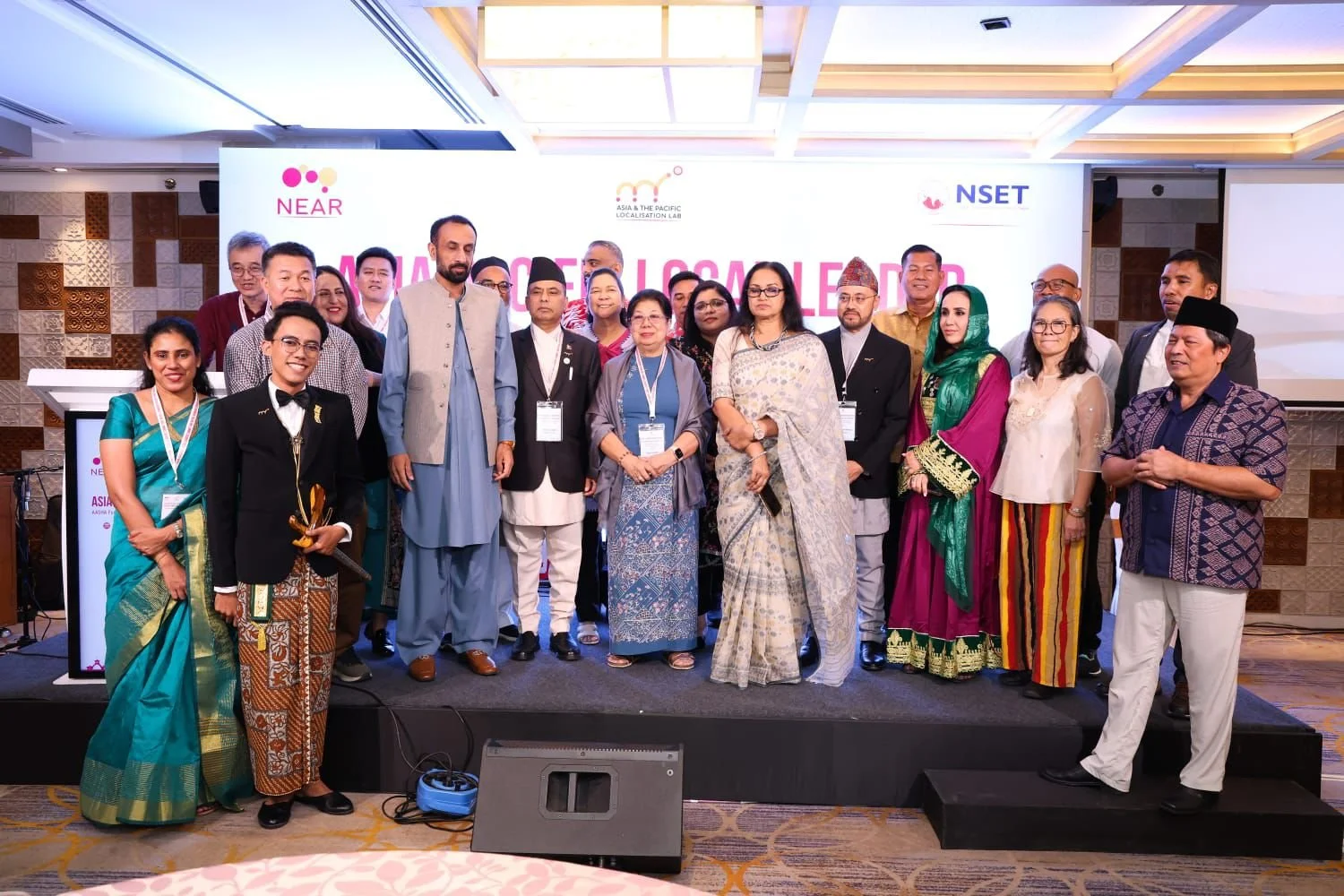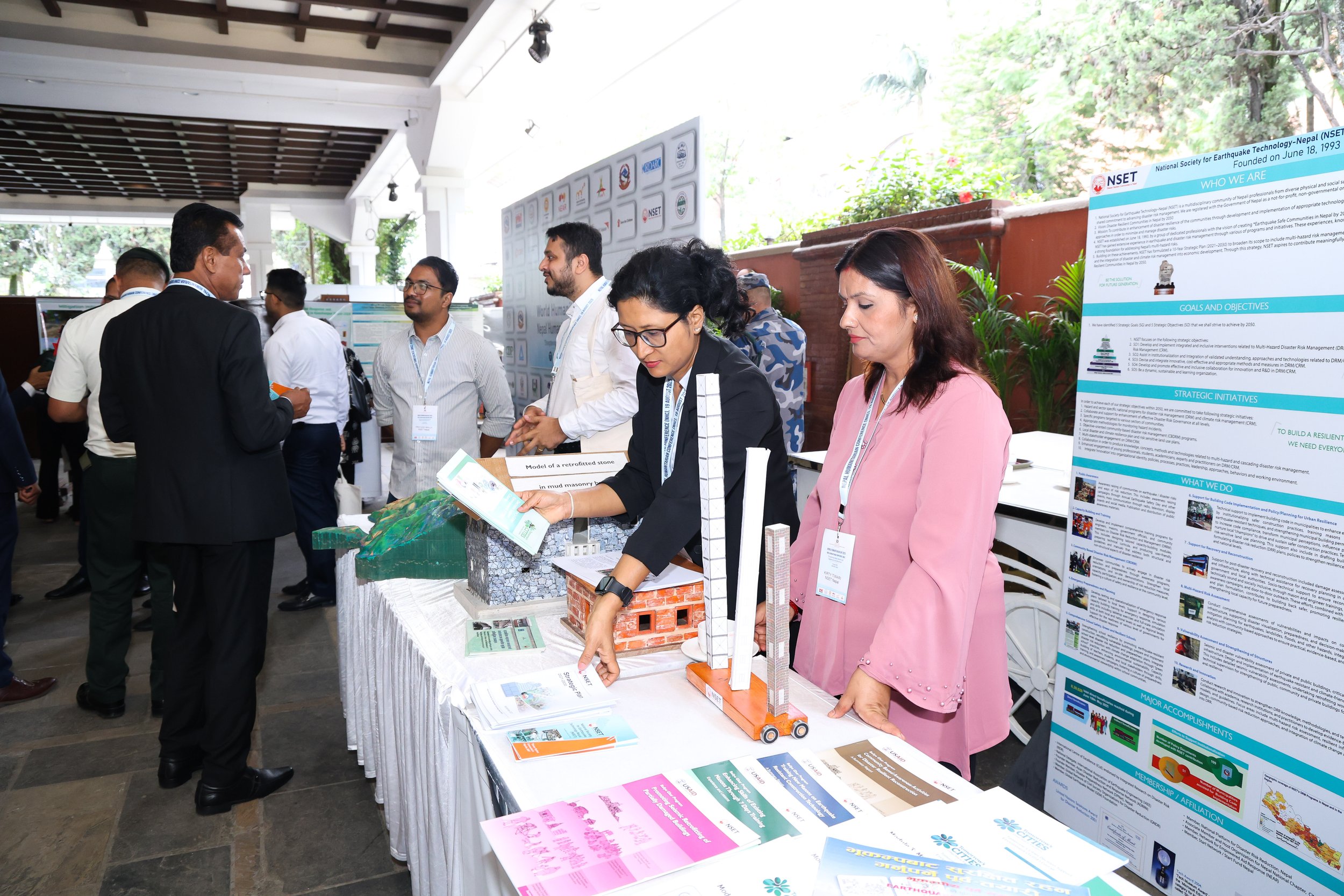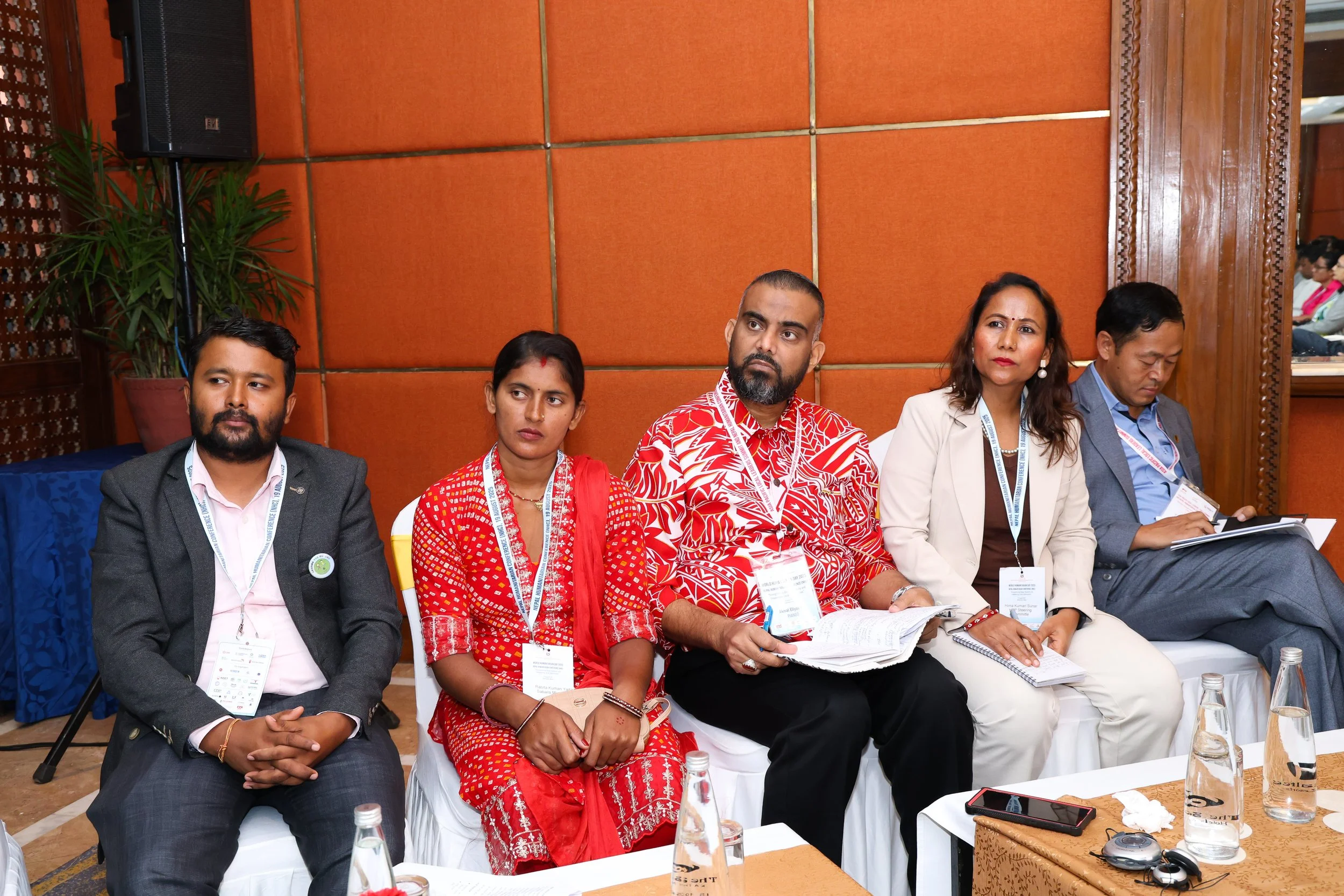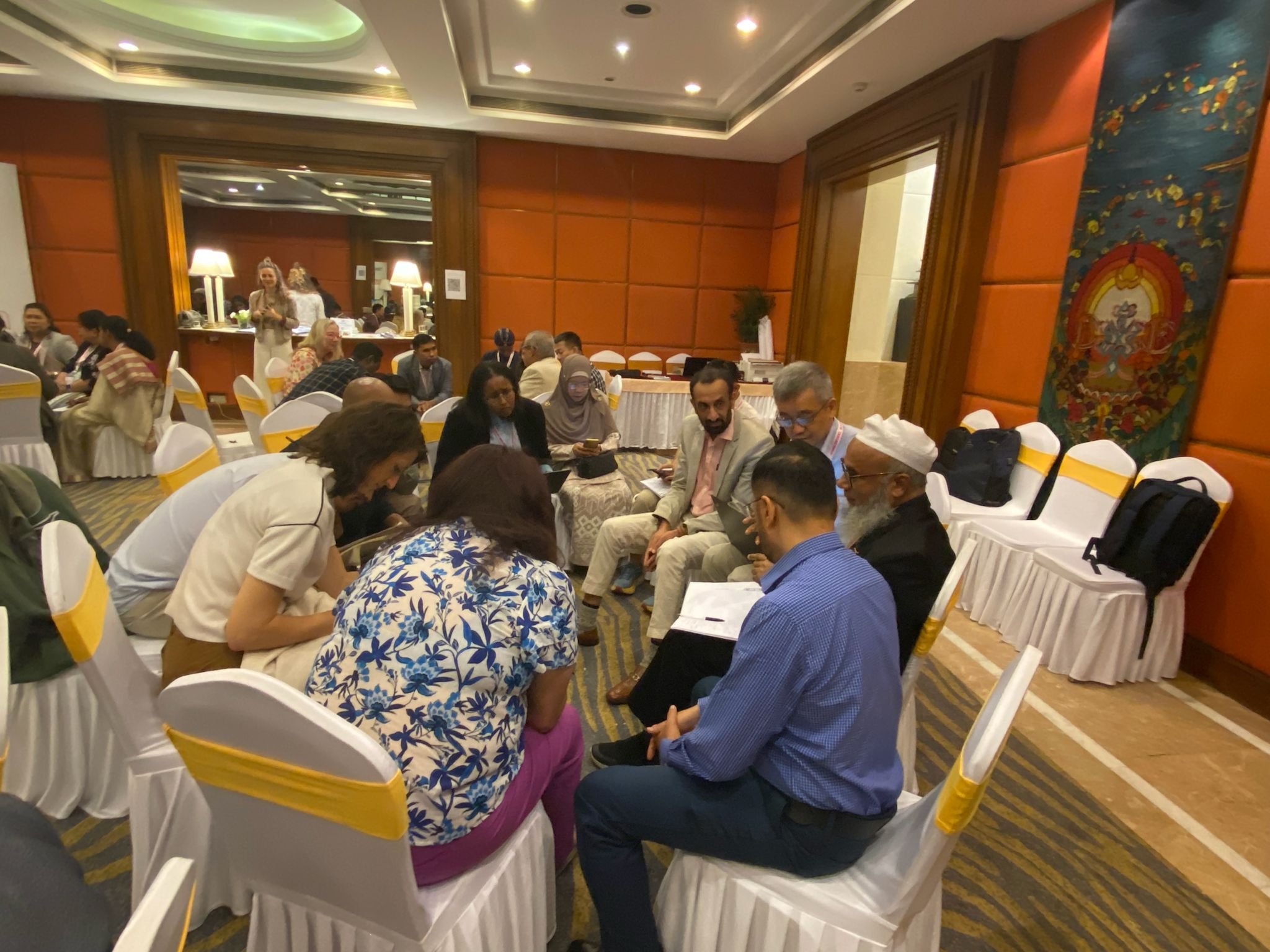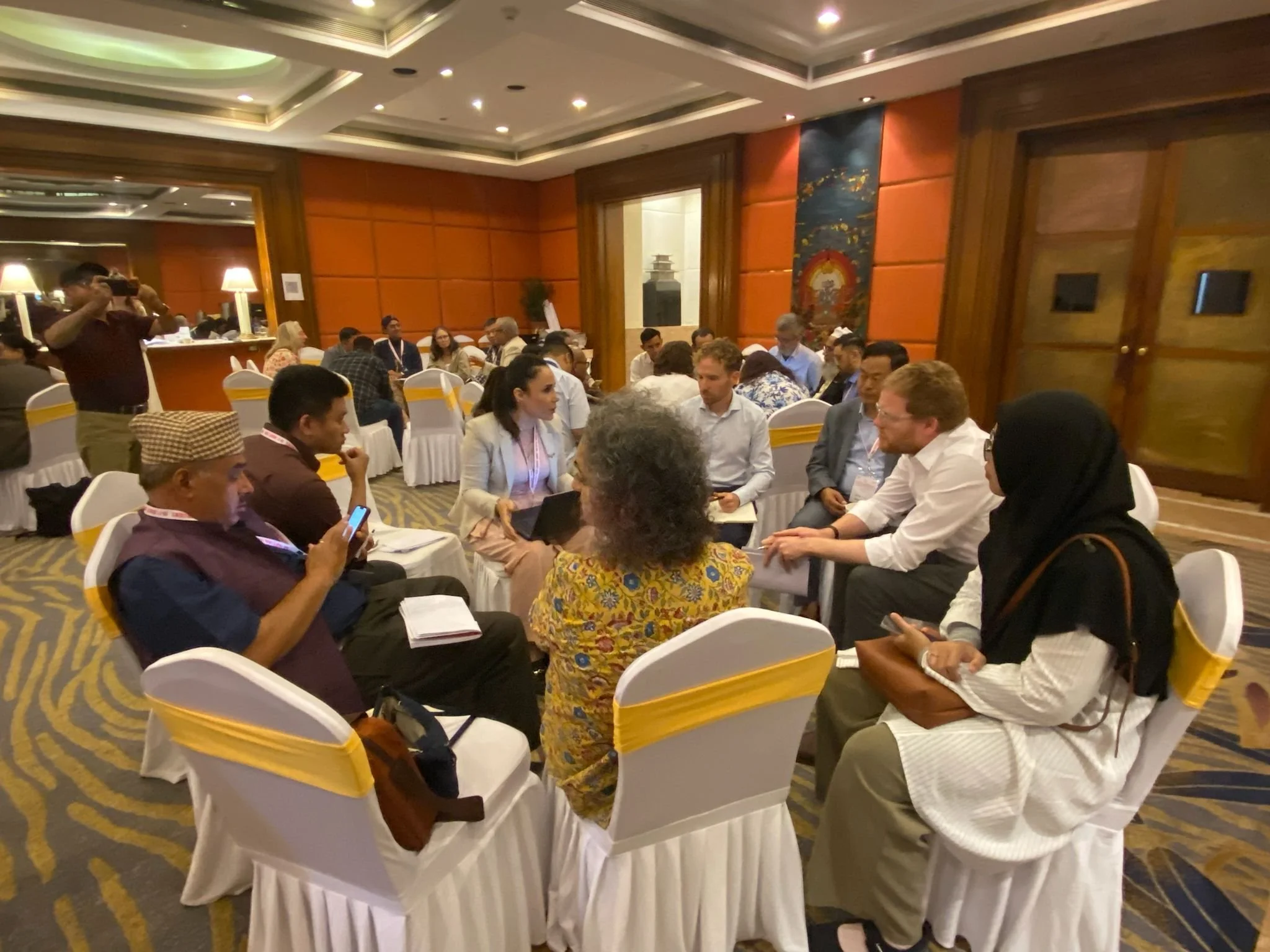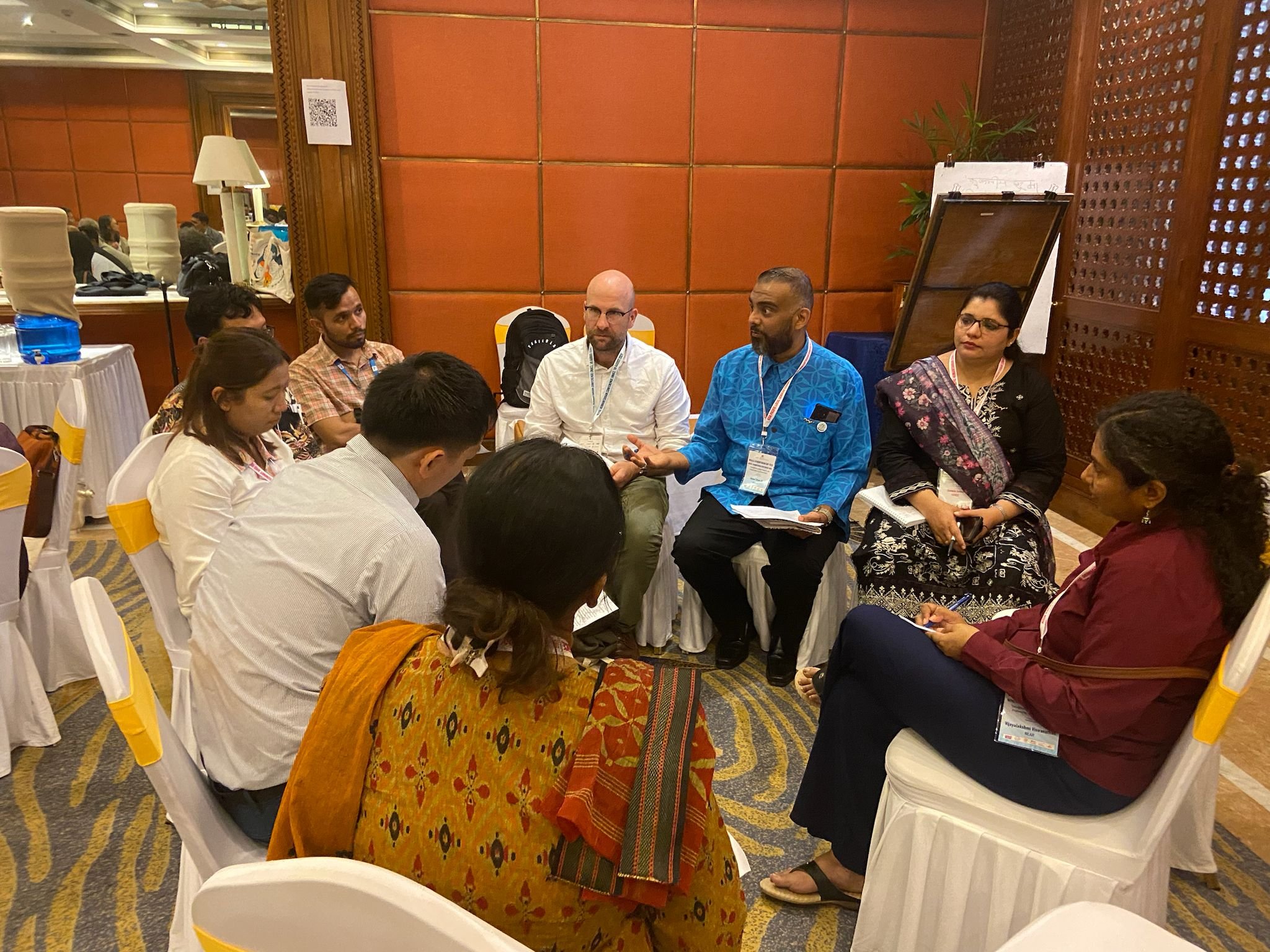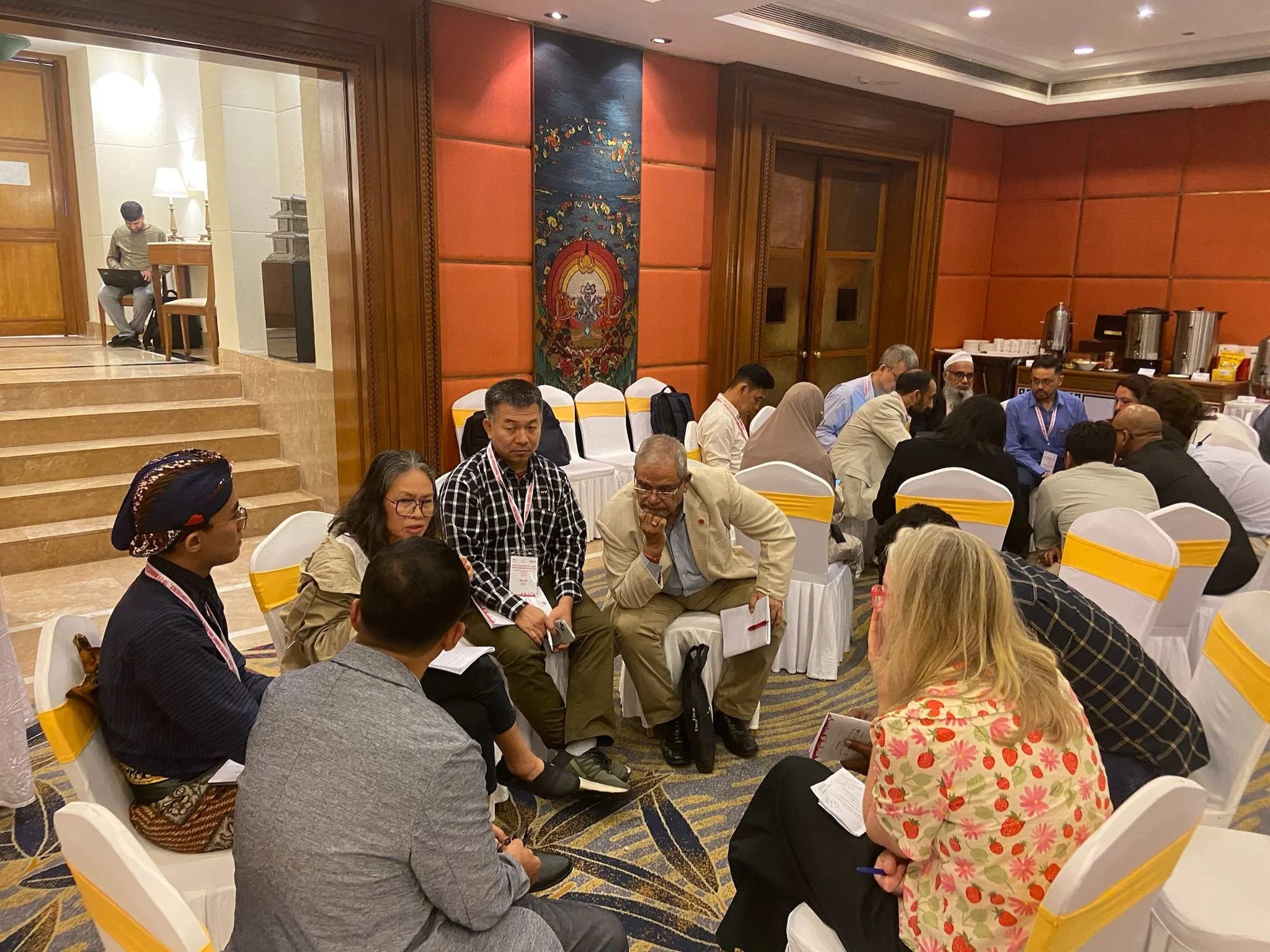by Sandrina da Cruz, Solutions Director at NEAR
Asia-Pacific Local Leaders Summit: Second Day
This year’s NEAR Asia-Pacific Local Leaders Summit was a testament of the strength that is harnessed from adversity. What follows is an attempt to summarise the powerful gathering of the NEAR Asia-Pacific Localisation Lab and friends from across the region – civil society and government leaders – in August in Kathmandu.
“We have been with the community. We are with the community. We will be with the community.” Rabeya Begum
We kicked off the Summit with time for connection and a warm welcome by our hosts - Surya Shrestha and his NSET team. The Asia-Pacific Localisation Lab (APLL) is represented by leaders from Afghanistan, Bangladesh, Cambodia, Fiji, Indonesia, Myanmar, Nepal, Pakistan, Philippines, Sri Lanka. We proceeded with a set of grounding updates about how the NEAR Asia Pacific Localisation Lab has advanced in the past year across the 4 workstreams: Learning, Solutions, Influencing and Movement Building. The trusting, collaborative relationships these leaders have nurtured over the years are palpable.
We dedicated the afternoon to weaving our collective story through insights from the extensive NEAR localisation research and learnings from the Future Series through which Global South leaders imagine a future of solidarity, self-sufficiency, and sustainability. And while on the journey to radically imagine a future designed by, for and with local communities, a colleague from the Philippines reminded us to think critically about “what price are we willing to pay for those visions of futures”.
“We need to continue to dream and dream big.” Loreine Dela Cruz
The second day was themed a Solutions Festival – celebrating the multitude of grassroots-led initiatives and locally led solutions! Nearly 200 people from across the region including members of civil society, government, funders, and the private sector participated in a day packed with inspiring storytelling and informative sessions. Among the special guests, we were joined by the Hon’ble Ramesh Lekhak, Nepal Minister of Home Affairs, and Hanaa Singer-Hamdy. The morning was anchored in equitable partnerships, strengthening and building on the capacity of leaders across sectors, exploring the role of local government, and positioning international support as a measure of last resort.
Solutions Gallery Walk
We learned through storytelling as local leaders showcased the community impact of locally designed and led solutions. An effective initiative to measure the extensive local resources and contributions in Bangladesh is shaking the traditional mindset that donor funding is the only contribution to projects. In Fiji, local leaders are working with funders to challenge the aid dependency model and designing interventions that build on the communities’ strengths to create sustainable livelihoods. A gallery walk provided the opportunity to learn about dozens of solutions hailing from across the Asia Pacific region.
The day concluded with celebrating the culture of Nepal and the diversity of the region as local leaders dressed up in ornate and colourful national outfits to honour World Humanitarian Day and the 2015 Gorkha-Kathmandu Earthquake and announce the launch of the AASHA Fund and Nepal Localisation Lab. [See Press Release for more information on these launches, plus the Kathmandu Covenant here.]
“The APLL it’s about creating transformation. Reclaiming the power we always had.” Akmal Ellyas
On day three, we gathered with funders, INGOs and other stakeholders and engaged in candid, fishbowl-style conversations and small group discussions. We pressure-tested pitches about various locally led initiatives. Participants also took turns externalising the disruptions they’re experiencing and observing in their organisations and the sector overall, sharing the reactive and proactive approaches they’re exploring and the coping mechanisms already taking shape. Resilience was a theme echoed throughout – communities are showing up for each other and we don’t have time to lament what once was.
Funders and other friends of the APLL practiced active listening and provided critical feedback about various initiatives, including the Philippines Localisation Lab, the Indonesia Humanitarian Coordination Platform, the AASHA Fund and Core Fund Nepal, the Afghanistan Localisation Lab, and the FALE local leadership model in Fiji. We dissected the evolving role of INGOs, exploring themes of power, partnerships, and resources. The day’s sessions created space to humanise our colleagues across the aid ecosystem which we often easily reduce to as acronyms and sector terminology.
“We have our own identity. This is our safe space.” Sumera Javeed
Nurtured, invigorated and buzzing from the connections and conversations from the prior days, we concluded the Summit with gratitude, surfacing new insights and concretely outlining next steps. Members of each of the Asia Pacific Localisation Lab Workstreams met to map out the road ahead.
The Summit culminated with a visit to Bhaktapur Durbar Square – a beautiful, historic, UNESCO heritage site that’s been affected by earthquakes, most recently in 2015. The spirits soared and the smiles shone bright against the grey and rainy Nepali afternoon.

